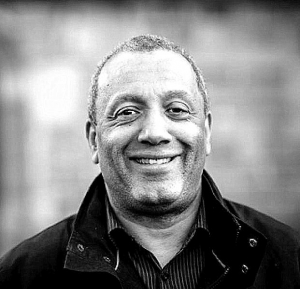
Beyond the Medical Model – Redescribing Dementia
The book is a scholarly synthesis which goes beyond the medical model. It is not about medicine using theology as a “benefit” to a person living with dementia. He writes that the powerful voices of the medical community, society, the media, family, friends, and caregivers can be overwhelming to the individual’s story. Instead of powerful voices “providing the script that shapes and determines our understanding of dementia, they themselves will be called to learn a new script,” he states. Readers are encouraged to tell their own stories to “redescribe dementia” in “new, challenging, and more faithful ways.”
“She’s not my mother anymore” is part of the conventional storyline. When an individual experiences memory loss, it is frequently said that the person is no longer “the same person.” Dr. Swinton’s work shows us otherwise – that being human is more than memory alone.
He presents both a practical and theological counter-story – away from the belief that the cognitive self is required for humanness. He states that “knowing about God may not be as important as knowing God.” He asserts that “knowing God involves much more than memory, intellect, and cognition.”
He uses Michael Ignatieff’s book, Scar Tissue, to introduce us to the parable of two brothers whose mother’s experience with dementia provides two ways of looking at it. For the philosopher son, it is the experience that is important – his mother’s experience and his experience. The son who is a medical doctor, a “hard-nosed scientist” finds “no mystery or wonder in this story – just hard cold facts.”
What One Expects to See Is What One Will See
“Ultimately,” Dr. Swinton states, “it’s about which story one chooses to believe. What one expects to see is what one will see. What matters in shaping one’s experience is whether one comes in close – or stands back.”
Dr. Swinton suggests to pastoral carers among his readership that too often dementia is viewed only through classification systems. Standard DSM or ICD – which are tools for professionals and which highlight only pathology – have been too readily accepted by lay people.
He quotes the late Oliver Sacks, MD, a neurologist, as saying “Neurology’s favorite word is ‘deficit.’” Thus, Dr. Swinton states, we miss seeing the “unique person with feelings, hopes, loves, and joys.”
He synthesizes for his readers the work of Tom Kitwood, PhD, (Dementia Reconsidered: The Person Comes First) and Steven Sabat, PhD, (The Experience of Alzheimer’s Disease: Life Through a Tangled Veil). Both are psychologists who have helped lay a strong foundation for us to bring love, relationships, and care into the discussion.
Through the lens of Dr. Kitwood and Dr. Sabat, the author shows us that dementia is more than neuropathology. It is through social construction that a person living with dementia becomes marginalized and isolated. This “malignant social psychology” is described as dangerous and dehumanizing not only to the person living with dementia, but also those who engage with that person.
A Powerful Counter-Story: Belonging
What is re-humanizing? “Intentional love.” A love which, according to Dr. Swinton, requires “determination, fidelity, and an intentional desire” to be present. He believes that this faithfulness is saying to the person living with dementia, “It’s good that you exist; it’s good that you are in this world (Genesis 1:31).”
Dr. Swinton’s powerful counter-story is that the person’s value and identity are held by God who sustains them and offers “the gift of life and relationship…” This counter-story has potential for building “a firm foundation for dementia care that is authentically person-centered and truly faithful.”
Regarding the role of the church community, Dr. Swinton offers insights from his prior nursing experience working with both dementia and disabilities. This experience has made him a key figure in the development of “disability theology.” He often hears, “We don’t have the skills…” but, he asks, what skills are needed? Time. Time to be with someone. Time to develop a relationship, one which misses the person when the person doesn’t show up.
“And,” he states in a 2013 interview with Chelsea Temple Jones of the UC Observer, “…when things are wrong, being outraged about how people living with dementia are being treated.” (UC Observer – Ethical Living, Justice and Faith, February 2013)
Paraphrasing Dr. Swinton, the church and religious communities could stop separating people living with dementia – and just think of them as people. A goal of all communities, especially religious communities, should be belonging.
Dementia – Living in the Memories of God (2012)
Author: John Swinton, PhD, BD, RMN, RNMD
_______________
Author: Susan Troyer








Leave A Comment